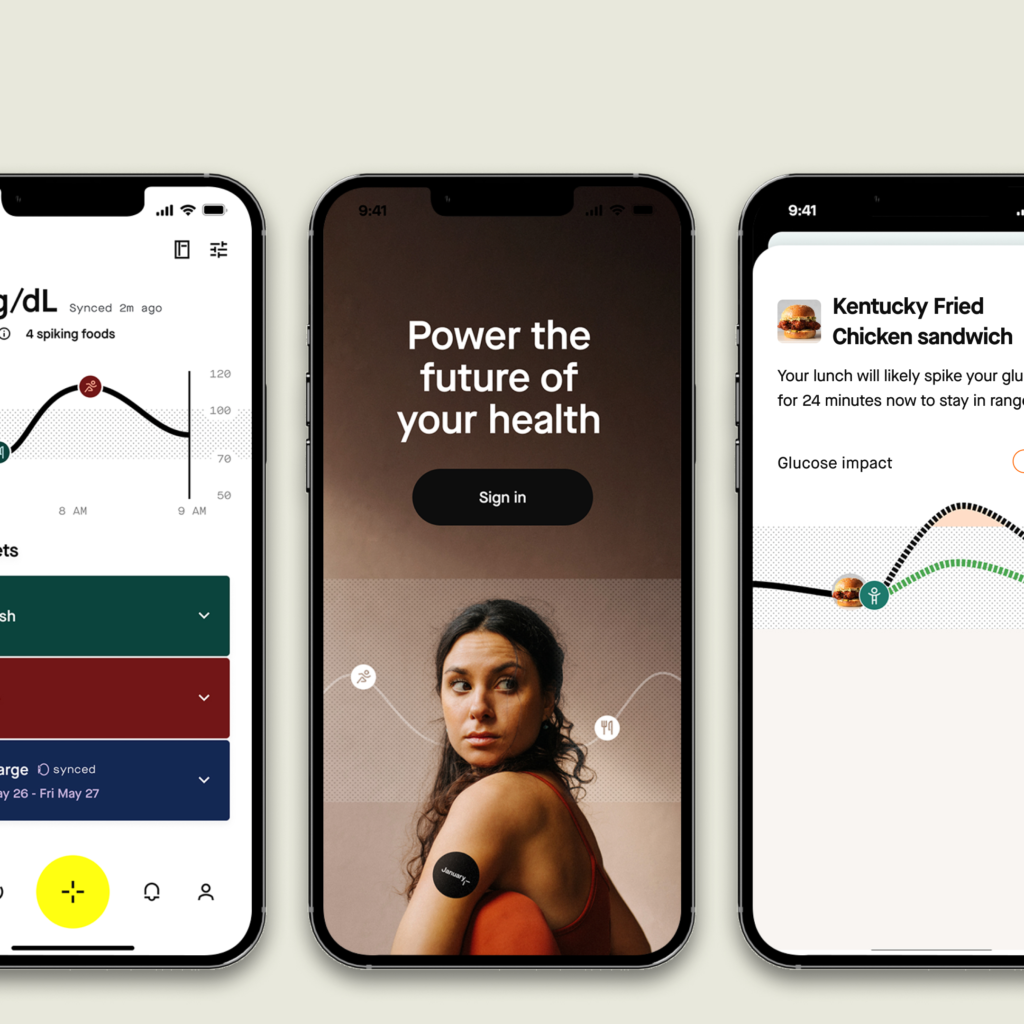
The food and drink giant is one of several firms using tech developed by January AI to dive deeper into personalized nutrition
“Artificial Intelligence” may be one of the biggest buzzwords of 2023, and for good reason: fitness and health companies are among the leading players harnessing the simulation of human superpowers. Among those major players are food industry titans, who are clamoring in test kitchens, using algorithms to create recipes designed to make palatable yet healthy food.
As consumers continue to adopt healthy habits and as weight loss medications such as Ozempic and Wegovy are clobbering shares of snack and beer companies, it’s likely prudent for the food industry to lean into creating healthier (but still tasty) products.
January AI, a metabolic health platform, looks at the current landscape as a crisis, heightened by rising healthcare costs and an alarming statistic from the CDC that 37.5 million Americans (roughly one in ten) have diabetes, with one in five unaware that they have the condition. It’s a grim picture, but one that January AI has set out to change by promoting well-informed eating with generative AI.
Launched in 2017 by Noosheen Hashemi and Stanford University’s Dr. Michael Snyder, January AI says its approach can help end lifestyle-related diseases.
January AI’s Digital Twin
The metabolic health platform uses wearables to help users decide what to eat by combining continuous glucose monitoring, generative AI and a database of 32 million food items, but it takes it a step further. Users can now access a digital twin, to see how certain food selections will impact their digital twin’s blood sugar.

It’s the equivalent of offering consumers a science-backed crystal ball in which they can see the potential impact of certain foods on the body, therefore encouraging them to make healthier meal choices.
Nestlé Embraces AI
The platform is helpful to consumers, but it’s also proving valuable to major food companies, such as Nestlé. The multinational food and drink leader is using January AI’s digital twin technology as it considers AI for product innovation, such as personalized nutrition for those with special considerations, like diabetes.
According to January AI, the food industry has the potential to enhance the taste and texture of food, as well as its glycemic impact on the body, by using its digital twin capabilities.
“Our digital twin technology gives food companies an additional level of intelligence beyond what they already employ in their product development process,” explained Hashemi, CEO of January AI. “We’re able to help them see how people with diabetes or pre-diabetes would do on their various foods and decide how to reformulate their foods to be healthier for the population. This allows for virtual product development and optimization before any costly lab work is undertaken.”
AI-Powered Cheese
Along with food industry leaders, biotech companies are also exploring the power of AI to make nutrition more personalized and even positively impact the environment.
Climax Foods, a biotech startup, made news this summer for using “precision formulation” AI to discover a plant-based protein ingredient that mimics the melting magic and texture of casein, a dairy protein in cheese. A win for those with allergies, dairy sensitivities or a vegan lifestyle, Climax Foods credits its proprietary AI and data science process for discovering a new approach in creating AI-powered cheese.
Instead of attempting to genetically engineer plants to make proteins, Climax Foods says it uses data science and machine learning to model different formulations while also uncovering what makes certain foods “craveable” to human taste buds.
While it may sound reminiscent of a high school chemistry class, Oliver Zahn, CEO and founder of Climax, explains that the company isn’t changing any ingredients genetically, but is using what already exists.
“Plants can impart all of the same texture, taste, and performance of animal-based ingredients – our AI-enabled Deep Plant Intelligence platform takes away the guesswork,” Zahn said. “For our casein replacement, our AI platform and precision formulation process helped us uncover a mechanism in specific plant proteins that imparts indistinguishable melt and stretch and mouthfeel from casein while also dramatically improving nutrition.”

Although it’s focused on dairy products at the moment, Climax Foods has its sights set on food products far past cheese. Zahn confirmed that the biotech company’s AI process can one day be applied to replace other animal-based foods.
“This is one of the most important scientific breakthroughs in food in the last six thousand years—since humans invented animal agriculture – but we are only getting started,” Zahn said.
